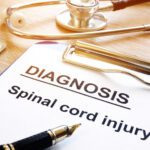Have you been experiencing issues with sleep lately? Night after night, you try to get a good night’s rest, but nothing seems to work. You toss and turn, unable to relax.
You feel groggy and exhausted all day, even after getting a full night’s sleep. You wonder if you have chronic fatigue or sleep disorders, but you’re not sure which one.
If this is you, you might have sleep apnea.
Not sure what sleep apnea is? Read on to learn about the subtle signs of sleep apnea.
Snoring Loudly
Snoring loudly is often a sign of changes in the airway and can be an indicator of a more serious issue. People with sleep apnea may snore loudly and often. With this, they’ll have trouble sleeping or staying asleep.
It is important to seek medical attention if you or someone you know is snoring loudly. Treatment is available to improve sleep quality as well as address sleep apnea.
Waking up Feeling Tired and Unrested
Despite the number of hours in bed, people with sleep apnea find themselves not fully rested in the morning. They end up suffering from fatigue and sleepiness throughout the day.
You’ll experience the feeling of fatigue and unrest even after eight hours of sleep. This might be due to apnea episodes interrupting sleep.
Apnea episodes are usually caused by pauses in breathing. This prevents the sufferer from entering deep, restorative sleep.
Consulting with a medical professional is necessary to determine the cause. Treatment may include wearing a sleep apnea mask or an oral appliance.
Experiencing Headaches in the Morning
Both sleeplessness and sleep apnea can cause headaches. This is because both can result from the body not getting enough oxygen.
When oxygen levels in the body are low, the body compensates by causing a slight drop in blood pressure. This drop in blood pressure can lead to headaches.
Sleep apnea can also cause headaches because it can cause the brain to get deprived of oxygen. Symptoms of a headache caused by sleep apnea and sleeplessness are different.
One key example is getting headaches that occur in the morning. These types of headaches are more often associated with sleep apnea than lack of sleep.
Watch out if you experience headaches in the morning. This is especially the case if it comes with other symptoms like snoring and tiredness.
Feeling Sleepy During the Day
When a person’s breathing is irregular, the quality of their sleep decreases. This decreases the amount of restorative sleep. This can result in a person feeling frequent daytime sleepiness and fatigue.
As the body struggles to function, the individual may experience a greater need to take naps. Usually, there’ll be an increased urge to sleep during the day.
If you’re feeling sleepy during the day more than normal, it’s best to talk to your doctor. They can help in checking for any underlying issues. Then, they can determine the best treatment plan for a healthier, better-rested life.
Mood Swings and Irritability
Mood swings and irritability often go hand-in-hand. They can be a sign of a larger underlying problem, such as sleep apnea.
If a person is sleep-deprived, the likelihood that they may become sensitive and anxious is high. Any mood swings and irritability should be checked out with a healthcare professional. Doing so will ensure that there isn’t a more serious underlying cause.
Dry Mouth and Sore Throat Upon Waking Up
A dry mouth happens when the mouth is wide open throughout the night. This can be due to the lack of adequate breath control by the body. This can lead to sore throats as the tissues that line the throat become dry, swollen, and uncomfortable.
Unexplained Weight Gain or Loss
Weight gain can occur due to the body’s effect from sleep apnea on the metabolism, hormones, and hunger signals. Weight loss can also occur since sleep apnea can leave the sufferer feeling tired and unmotivated to eat as normal.
If you have experienced unexplained weight gain or loss, it is best to speak with your doctor to rule out sleep apnea. If diagnosed, treatment can help to restore the balance of your weight.
What Causes Sleep Apnea?
There are three main types of sleep apnea: obstructive, central, and mixed. Obstructive sleep apnea is the most common type. It happens when there is a blockage of the airway.
Central sleep apnea is due to a problem with the brain signals that control breathing. Mixed sleep apnea is a combination of both obstructive and central sleep apnea.
Sleep apnea can happen due to many different things. These include obesity, smoking, alcohol abuse, family history, and certain medical conditions.
If you think you might have sleep apnea, it’s important to see a doctor so that you can get treatment. Untreated sleep apnea can lead to serious health problems. It can lead to high blood pressure, heart disease, stroke, and even death.
Treating Sleep Apnea
Common options for sleep apnea treatment are lifestyle changes, medical therapies, and surgery. Lifestyle changes can help improve sleep apnea symptoms. These can include avoiding alcohol consumption, quitting smoking, and controlling weight.
Medical therapies help by improving breathing during sleep. Examples are continuous positive airway pressure (CPAP) therapy, oxygen therapy, and adjusting medications. Of these, travel CPAP machines seem to be among the most popular ones.
Surgery may also be an option in severe cases. The goal of this is to open the airway and provide relief from sleep apnea symptoms. The type of surgery will depend on the severity of the symptoms.
Sometimes a combination of these treatments can be more effective than one alone. If you think you have sleep apnea, speak with a doctor to determine the best course of action.
Knowing the Subtle Signs of Sleep Apnea
Sleep apnea is a serious condition that can have a profoundly negative impact on one’s health if left unmanaged. Knowing the subtle signs of sleep apnea can be incredibly important, as it can aid in early detection and treatment.
If you experience some of these signs and believe you may be at risk, don’t wait! Speak to your doctor today.
Found this information helpful? Please keep browsing the rest of this site for more great health tips.









